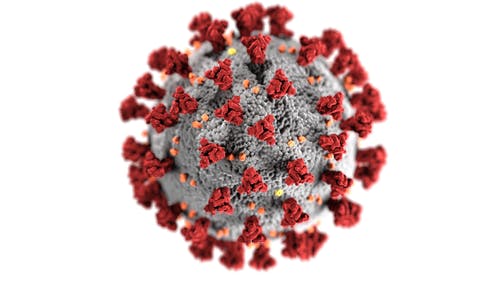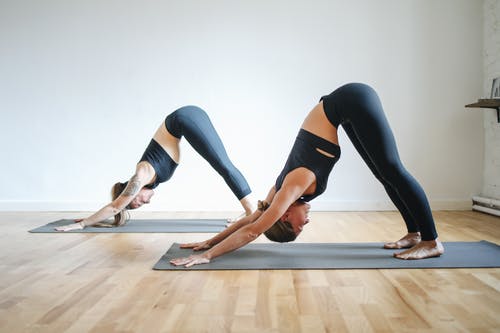Daily Routine: A Naturopathic perspective
Developing a healthy lifestyle is the first step to prevent and combat any disease. The objective of this article is to outline a simple daily routine based on the principles of naturopathy.
Amidst the covid-19 pandemic, fear and anxiety are rife in the hearts of people worldwide. While on the one hand there is a growing unrest because of the fright of covid-19, on the other hand there is a growing lethargy in majority of the population in home quarantine. The nation-wide lockdown has forced people to stay indoors thereby resulting in a sedentary lifestyle, untimely eating and disturbed sleep cycle. These in-turn are known to contribute to reduced immunity (Besedovsky et al., 2012; Simpson & Guy, 2010) and makes them more prone to infections, thus setting up a vicious cycle.
Going forward, this virus cannot be defeated by conventional medicine alone. Naturopathy advocates lifestyle modification and simple immune enhancing measures. It can be used as an adjunct to conventional medicine for more efficient and effective patient care.
Naturopathy is also largely preventive in nature, and thus may help curb the spread of infection.
A Naturopathic View
Naturopathy can be defined as a drugless, non-invasive, rational and evidence based system of medicine imparting treatments with natural elements based on the theory of vitality, theory of toxemia, theory of self-healing capacity of the body and the principles of healthy living (Joseph, n.d.).
One of the fundamental principles of nature cure state that: “germs do not cause disease, but are present in disease conditions”.
When the body’s innate immunity is lowered, a favourable environment is created for the colonization of germs or microbes. Therefore, the cause of disease is the lowered defence mechanism of the body and not the invading organism.
A healthy individual with a strong immune system does not develop the disease even after coming in contact with the pathogen. Whereas, weaker individuals with lower immunity succumb to the disease.
Therefore, eliminating the pathogen from the human body does not treat the root cause of the infection, which is lowered immunity.
Naturopathy aims at establishing suitable lifestyle modification to enhance the body’s protective and self-healing mechanisms. This not only treats the current disease but also prevents further infections.

A Daily Routine
The objective of this article is to outline a simple daily routine based on the principles of naturopathy. Traditional references for a healthy lifestyle can be found in the Arogya Rakshaka Panchatantra enumerated by Dr B Venkat Rao. This may help in preventing the spread of Covid-19 and also reduce the anxiety surrounding the issue.
1. Get adequate good quality sleep every night.

The human body has its own internal 24-hour clock called the circadian rhythm. This is controlled by a hormone called melatonin, released from the pineal gland. Having a regular sleep-wake cycle is necessary for adequate synthesis and functioning of melatonin.
The physiological effects of melatonin are various and include detoxification of free radicals and antioxidant actions, bone formation and protection, reproduction, and cardiovascular, immune or body mass regulation (Tordjman et al., 2017).
Thus, a sound dreamless sleep of around 7-8 hours a night is advised.
Ensure that you go to bed and wake up at the same time every day.
2. Drink 2-4 litres of water every day.

Water is one of the five great elements or pancamahabhootas which make up the body. It is the medium in which all metabolic reactions are carried out.
Chronic stress is known to have a deleterious effect on immune functions and also cause cellular dehydration (Stefanaki et al., 2018). The constant apprehension surrounding continuous updates on the covid-19 pandemic may be inducing stress and thereby lowering the body’s water content.
It is extremely important to keep the body adequately hydrated in order to facilitate its optimum functioning and metabolism.
3. Exercise for one hour every day.

The benefits of exercise are numerous and well-established. It is known to prevent the effects of ageing (Galloza et al., 2017), improve sleep quality (Kovacevic et al., 2018), improve cardiorespiratory and musculoskeletal systems (Rimes et al., 2015) and also have significant anxiolytic and depression-reducing effects (Wegner et al., 2014).
The American College of Sports Medicine recommends that most adults engage in moderate-intensity cardiorespiratory exercise training for ≥30 minutes a day on ≥5 days a week for a total of ≥150 min per week.
Apart from cardiorespiratory exercise, resistance exercises, neuromotor exercise involving balance, agility, and coordination and flexibility exercises are advised (Garber et al., 2011).
This kind of exercise can be achieved by the regular practice of yoga asanas. Apart from the above-mentioned physical benefits, yoga practice has an added spiritual aspect. This ensures a holistic treatment of the body.
Be sure to add atleast 15-20 minutes of pranayama to your daily yoga session. It helps improve lung functions by increasing lung volumes and capacities.
Advanced relaxation techniques like cyclic meditation, yoga nidra, MSRT etc… are also helpful in reducing stress and improve sleep quality.
4. Prayer twice a day.

Prayers helps calm the mind. Loud chanting of mantras or prayers energize the body with positive vibrations.
One of the ten basic principles of naturopathy also enumerate the importance of having faith.
5. Eat two meals a day.

Stick to a regular eating regimen. Eat at the same time every day and have two balanced meals a day. Avoid snacking in between meals.
Include the following in your diet:
Anti-inflammatory foods: turmeric, cinnamon
Anti-tussive: pepper, honey, tulsi
Improves respiratory membrane integrity: vitamin D rich food (cod liver oil, mushrooms, exposure to sunlight)
Wound healing food: Vit C rich food (amla, guava), zinc rich food (sunflower seeds, pumpkin seeds)
6. Fasting once a week.

Fasting is the complete voluntary abstinence from any kind of food. Fasting is known to have potential for improving immunity. Experienced fasters can choose to opt for lemon honey fasting or water fasting. Beginners can start with a fresh fruit juice diet or raw diet once a week.
Traditional Indian scriptures advise to use the day of fasting for introspection and commence an internal journey into oneself.
Conclusion:
Developing a healthy lifestyle is the first step to prevent and combat any disease. Establishing a new routine requires commitment and determination.
If you are intimidated by completely changing your lifestyle, start with a few changes at a time. There will be days when you may not be able to keep up with your schedule. But don’t give up. Just try again the next day and keep going.
References:
Besedovsky, L., Lange, T., & Born, J. (2012). Sleep and immune function. In Pflugers Archiv European Journal of Physiology (Vol. 463, Issue 1, pp. 121–137). Pflugers Arch. https://doi.org/10.1007/s00424-011-1044-0
Galloza, J., Castillo, B., & Micheo, W. (2017). Benefits of Exercise in the Older Population. In Physical Medicine and Rehabilitation Clinics of North America (Vol. 28, Issue 4, pp. 659–669). W.B. Saunders. https://doi.org/10.1016/j.pmr.2017.06.001
Garber, C. E., Blissmer, B., Deschenes, M. R., Franklin, B. A., Lamonte, M. J., Lee, I. M., Nieman, D. C., & Swain, D. P. (2011). Quantity and quality of exercise for developing and maintaining cardiorespiratory, musculoskeletal, and neuromotor fitness in apparently healthy adults: Guidance for prescribing exercise. Medicine and Science in Sports and Exercise, 43(7), 1334–1359. https://doi.org/10.1249/MSS.0b013e318213fefb
Joseph, B. (n.d.). Definition of Naturopathy. Retrieved May 3, 2020, from http://punenin.org/attach/defnition_naturopathy&fasting.pdf
Kovacevic, A., Mavros, Y., Heisz, J. J., & Fiatarone Singh, M. A. (2018). The effect of resistance exercise on sleep: A systematic review of randomized controlled trials. Sleep Medicine Reviews, 39, 52–68. https://doi.org/10.1016/j.smrv.2017.07.002
Rimes, R., de Souza Moura, A., Lamego, M., de Sa Filho, A., Manochio, J., Paes, F., Carta, M., Mura, G., Wegner, M., Budde, H., Ferreira Rocha, N., Rocha, J., R.S. Tavares, J., Arias-Carrion, O., Nardi, A., Yuan, T.-F., & Machado, S. (2015). Effects of Exercise on Physical and Mental Health, and Cognitive and Brain Functions in Schizophrenia: Clinical and Experimental Evidence. CNS & Neurological Disorders - Drug Targets, 14(10), 1244–1254. https://doi.org/10.2174/1871527315666151111130659
Simpson, R. J., & Guy, K. (2010). Coupling aging immunity with a sedentary lifestyle: Has the damage already been done? - A mini-review. In Gerontology (Vol. 56, Issue 5, pp. 449–458). Gerontology. https://doi.org/10.1159/000270905
Stefanaki, C., Pervanidou, P., Boschiero, D., & Chrousos, G. P. (2018). Chronic stress and body composition disorders: implications for health and disease. In Hormones(Vol. 17, Issue 1, pp. 33–43). Springer. https://doi.org/10.1007/s42000-018-0023-7
Tordjman, S., Chokron, S., Delorme, R., Charrier, A., Bellissant, E., Jaafari, N., & Fougerou, C. (2017). Melatonin: Pharmacology, Functions and Therapeutic Benefits. Current Neuropharmacology, 15(3), 434–443. https://doi.org/10.2174/1570159x14666161228122115
Wegner, M., Helmich, I., Machado, S., Nardi, A., Arias-Carrion, O., & Budde, H. (2014). Effects of Exercise on Anxiety and Depression Disorders: Review of Meta- Analyses and Neurobiological Mechanisms. CNS & Neurological Disorders - Drug Targets, 13(6), 1002–1014. https://doi.org/10.2174/1871527313666140612102841
